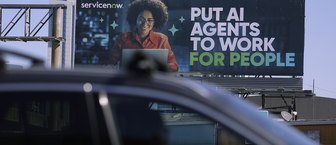The secret ballot is now thought to be a central democratic institution in the United States and abroad. We did not always vote in secret, but since the introduction of the Australian Ballot in the late 1800s, Americans have voted in private. One of the primary reasons for the adoption of the secret ballot was to help rid the political system of bribery and coercion by eliminating the possibility that who an individual voted for could be found out (without that person telling someone). While there are a variety of election laws and procedures in place that help maintain the secrecy of each voter’s ballot, the extent to which people actually believe their votes are kept secret (even if they don’t tell anyone) is a different matter.
Indeed, recent work suggests that substantial portions of the population either do not believe their ballots are kept secret (and perhaps with good reason in some, albeit rare, cases) and/or willingly share their choices with others. This work shows that people may vote differently than they otherwise would if they believe that their votes are not actually kept secret, despite the letter of the law. This opens the door to potential coercion of vote choices, particularly by those in positions of power, such as employers—an issue that received attention in the 2012 election.
After the November 2012 election (from November 17-20), we asked a nationally representative sample of respondents: “Thinking back to the 2012 presidential election between Barack Obama and Mitt Romney, at any point did your boss, supervisor, or employer [pressure you/tell you] how to vote?” [The text in brackets was randomized. We found no differences in response across question wordings.] The response options were:
- No, my boss, supervisor, or employer never [pressured me/told me] how to vote.
- Yes, my boss, supervisor, or employer [pressured me/told me] how to vote.
- My boss, supervisor, or employer did not explicitly [pressure me/tell me] how to vote, but made it clear in other ways which candidate they thought should be elected.
- None of the above.
Of the 463 respondents working full or part time, 15 percent answered “none of the above” and 72 percent answered “No…”. Less than 2 percent answered that their boss/supervisor/employer pressured/told them how to vote, but just over 11 percent indicated that their boss/supervisor/employer did not explicitly pressure/tell them how to vote, “but made it clear in other ways which candidate they thought should be elected.” Whether such pressure resulted in people actually altering their vote choices cannot be addressed with these data. Other research, however, does suggest the possibility of coercion by employers, finding that many people harbor doubts that their votes will be kept secret.
The Census Bureau estimates that about 160 million Americans are in the labor force. The results from this survey applied to that number suggest that 3.2 million workers were explicitly told by their boss how they should vote, and another 17.6 million had it made clear in other ways which candidate their employer preferred. In light of this pattern, it is perhaps not surprising that recent research suggests that registrants who have never voted may not have done so because they fear that, if they were to vote, their vote choices would become known to others. Experimental data also show that reassuring those registrants that their votes are private and may be cast free of intimidation increases turnout in midterm elections by about 3.5 percentage points (from 17 to 20.5%). Thus, despite the longstanding institution of the secret ballot, a subset of Americans appear to doubt whether their vote choices are appropriately secret and, when such doubts arise, may therefore be vulnerable to the surprisingly frequent efforts by employers to shape voting choices.








